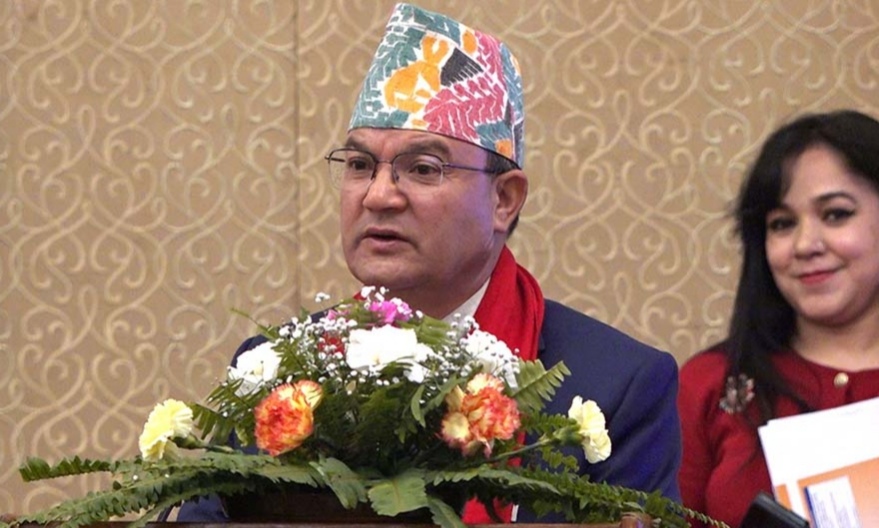Kathmandu, February 9, 2025 – Minister for Forests and Environment, Ain Bahadur Shahi Thakuri, has highlighted the critical need for financial resources to implement climate adaptation and mitigation strategies in Nepal. Speaking at an event organized by Sahara Nepal and The Coca-Cola Foundation, the minister underscored the urgency of addressing the impacts of climate change through sustainable solutions.
“Nepal is highly vulnerable to climate change, making it challenging to secure adequate funding for sustainable climate solutions,” Minister Shahi said. He emphasized the need to invest in climate-resilient agriculture, renewable energy, and sustainable forest management to mitigate risks and ensure long-term economic stability.
The minister also stressed that agriculture, the backbone of Nepal’s economy, requires a shift towards sustainable and regenerative practices. “Improving soil health, increasing biodiversity, and restoring ecosystems are crucial. Adopting agroforestry systems, organic farming, composting, and crop diversification is the way forward,” he stated. He further called for collaboration with local communities, cooperatives, and private sector partners to balance economic growth and environmental conservation.
Highlighting the financial challenges, Minister Shahi urged the promotion of climate adaptation funds, concessional loans, and incentive-based systems for farmers. He also called for greater private sector investment in sustainable agribusiness and the enhancement of public-private partnerships to scale up climate-smart solutions.
Former Minister Ganesh Sah emphasized the importance of climate-friendly infrastructure and technological innovations, stating that these are essential for long-term resilience.
Devyani Rana, Vice President of Coca-Cola India, affirmed Coca-Cola’s commitment to addressing climate-related crises in Nepal. “We prioritize environmental conservation and women’s empowerment through our investments and programs,” she noted.
Bharat Giri, Chairman of Sahara Nepal, echoed the call for climate-friendly agricultural practices, urging stakeholders to prioritize sustainability in farming systems.
The event concluded with a shared commitment from government bodies, private entities, and local organizations to work together to secure financial resources and implement innovative solutions to address the growing climate crisis.
Nepal’s fight against climate change is gaining momentum, but securing the required funding remains a critical challenge. Collaborative efforts and innovative financing will be key to building a sustainable and resilient future for the country.